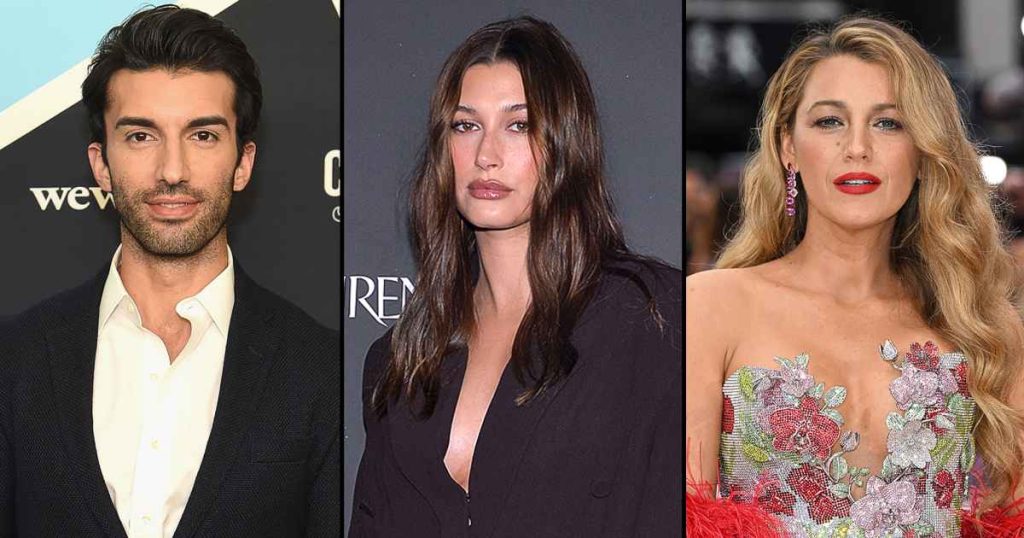The entertainment industry was rocked by a legal dispute between actors Blake Lively and Justin Baldoni, stemming from their collaboration on the film adaptation of “It Ends With Us.” Lively filed a lawsuit accusing Baldoni of orchestrating a smear campaign against her, employing a tactic known as astroturfing, to manipulate public opinion and damage her reputation. The alleged campaign unfolded against the backdrop of pre-existing tensions on the film set, with reports of clashes between the two actors and criticism directed at Lively regarding her handling of the film’s sensitive themes of domestic violence.
At the heart of Lively’s complaint is the allegation that Baldoni, in conjunction with his crisis management team, The Agency Group (TAG), engineered a covert campaign to disseminate negative narratives about her across social media and online platforms. This alleged astroturfing involved planting seemingly organic content, designed to appear as genuine public opinion, while subtly manipulating the narrative to Lively’s detriment. The lawsuit claims this strategy sought to portray Lively as a bully, drawing parallels to other celebrities accused of similar behavior, and leveraging the ongoing public discourse surrounding feminism and its potential weaponization. Lively’s suit highlights a screenshot of a social media post discussing Hailey Bieber’s alleged history of bullying, presented by Baldoni’s team as an example of the type of content to be disseminated, further solidifying the claim of a deliberate strategy to tarnish Lively’s image.
The alleged astroturfing campaign unfolded amidst a period of intense scrutiny for Lively. The actress faced criticism for her responses to questions about the film’s portrayal of domestic violence and for past interviews that resurfaced online. This existing negativity, the lawsuit argues, provided fertile ground for Baldoni’s alleged astroturfing efforts, allowing the planted content to blend seamlessly with genuine public criticism and amplify the negative perception of Lively. The actress ultimately retreated from social media amidst the backlash, sharing resources related to domestic violence before her departure.
Further complicating the situation is Lively’s separate sexual harassment lawsuit against Baldoni, filed just before the astroturfing allegations came to light. This lawsuit details a series of alleged inappropriate behaviors by Baldoni on set, creating what Lively described as a “hostile work environment.” The complaint outlines specific demands made by Lively to address the alleged harassment, including requests to cease discussions of a sexual nature, refrain from displaying explicit content, and avoid comments about her physical appearance and family. The timing of these two lawsuits suggests a deeply strained relationship between the actors and paints a picture of a production plagued by conflict.
Baldoni, through his lawyer Bryan Freedman, vehemently denied Lively’s allegations, characterizing them as “completely false, outrageous, and intentionally salacious.” Freedman asserted that Lively’s lawsuit was a preemptive strike to rehabilitate her negative public image and deflect responsibility for the film’s struggles. He countered with accusations of Lively making “multiple demands and threats” on set, including threatening to boycott promotional activities, ultimately contributing to the film’s underperformance. This exchange of accusations highlights the starkly contrasting narratives presented by both parties and underscores the complexity of the legal battle.
Lively’s legal actions have brought the issue of astroturfing into sharper focus within the entertainment industry. Her claim underscores the potential for such tactics to be used to manipulate public opinion, silence critics, and exact retribution. While astroturfing has been recognized as a concerning practice in politics and marketing, its alleged use in a context like this highlights the potential for reputational damage and the chilling effect it can have on those who speak out against alleged misconduct. The case raises questions about accountability and transparency in online discourse and the need to discern genuine public sentiment from manufactured narratives. Lively, in a public statement, expressed her hope that the lawsuit would shed light on these tactics and protect others from similar attacks. The case remains a developing story, with its eventual outcome potentially having significant implications for how the entertainment industry addresses similar allegations in the future.

